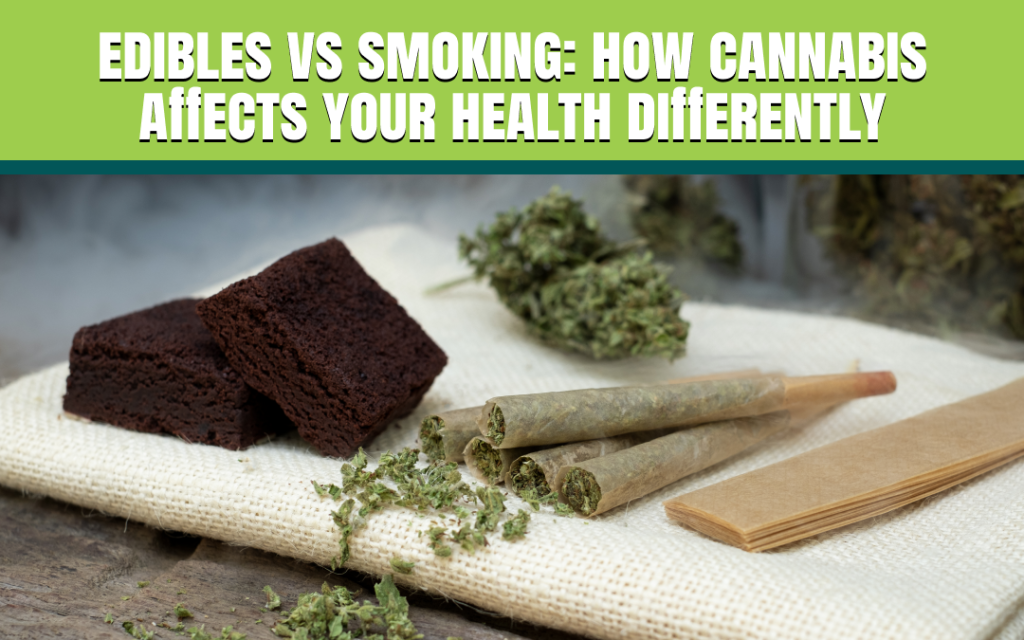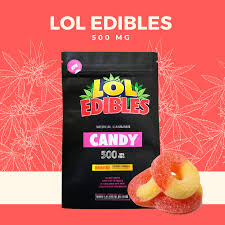
Cannabis affects people in many ways, and understanding its impact on health is important before choosing how to consume it. Some wonder, “Does weed have calories?”—especially when comparing edibles and smoking. While smoking delivers effects quickly through the lungs, edibles work differently inside the body. Both methods carry unique health benefits and risks. By exploring their effects, you can make smarter choices about safe cannabis use that fit your lifestyle and long-term wellness.
What Are Edibles and How Do They Work?
Edibles are cannabis-infused products like gummies, brownies, or drinks. Unlike smoking, where cannabinoids enter the bloodstream through the lungs, edibles are processed in the digestive system. This creates a delayed onset of effects, often taking 30 minutes to 2 hours, but the results last much longer. People often ask, “Does weed have calories?”—and with edibles, the answer depends on the food item since many products contain sugars or fats in addition to cannabis.
How Smoking Cannabis Affects the Body (Impact on Lungs, Heart, and Digestive System)
Smoking cannabis delivers cannabinoids almost instantly to the bloodstream through the lungs, creating fast and noticeable effects. However, this method exposes the lungs to smoke, which may cause coughing, irritation, or respiratory issues with long-term use. The heart can also be affected, as smoking may temporarily increase heart rate and blood pressure. While the digestive system is not heavily involved in smoking, inhaled toxins can still impact overall health. For many, smoking remains popular due to its quick onset, but it carries higher risks for lung health.
Risks and Side Effects of Edibles
Edibles are often seen as a safer alternative to smoking, but they come with unique challenges. Since their effects take longer to kick in, people may overconsume, leading to stronger and prolonged highs. Side effects can include dizziness, anxiety, or nausea, depending on dosage. The calorie content of certain edibles may also be a concern for those watching their diet. That’s why careful dosing and patience are essential when consuming cannabis in edible form.
Risks and Side Effects of Smoking
While smoking provides fast relief and easy dosing control, it carries risks linked to inhaling smoke and toxins. Frequent use may irritate the lungs, cause chronic cough, or increase the risk of respiratory problems. Smoking also raises short-term heart rate, which may not be suitable for individuals with heart conditions. Compared to edibles, the effects of smoking are shorter in duration but can still contribute to long-term health concerns if used regularly without moderation or caution.
Which Option Is Safer for Long-Term Health?
When comparing the two, edibles may be safer for long-term health since they avoid direct smoke exposure to the lungs. However, they can lead to accidental overconsumption if doses are not carefully measured. Smoking offers quick effects but is harsher on the respiratory system. Ultimately, the better option depends on individual health conditions and preferences. My Florida Green emphasizes making informed choices, encouraging patients to explore safe consumption methods that fit their medical and wellness needs.
Conclusion:
Both edibles and smoking have distinct advantages and risks, making it important to choose based on your personal health goals. Edibles may be better for those avoiding lung exposure, while smoking may suit those seeking immediate relief. Moderation, awareness of side effects, and guidance from professionals can make the experience safer. By weighing the pros and cons of each method, you can make a decision that supports your health and overall lifestyle with cannabis use.
